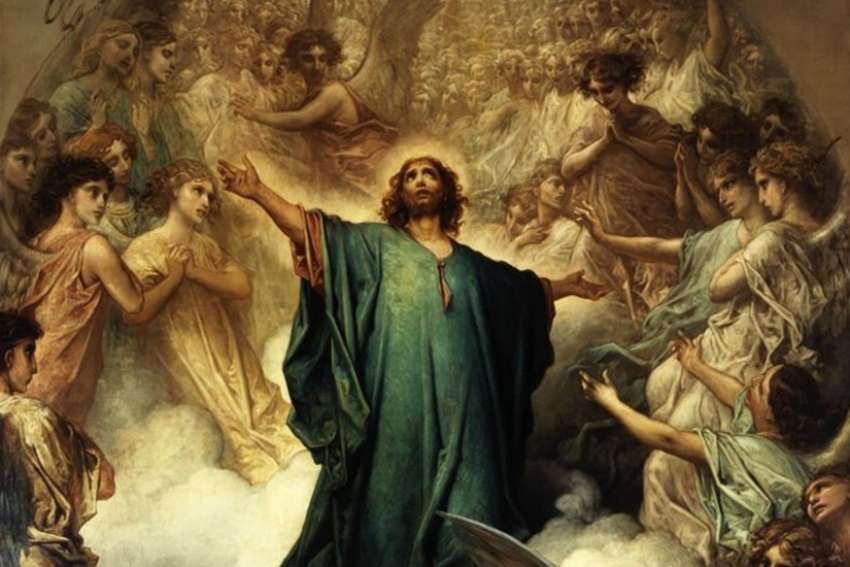What did Jesus teach the apostles and disciples during the 40 days He walked among them after the Resurrection?
This is one of the many tantalizing verses in Scripture — if only we had direct access to some of the spiritual wisdom He shared with them.
All of this was mere preparation for the descent of the Holy Spirit at Pentecost. One thing that He refused to share with them, however, was the divine timetable.
They were still thinking in human terms of upending the political order, expelling the Romans and restoring the kingdom of Israel.
With a gentle but firm rebuke, Jesus informed them that the divine plans were none of their business. They were to remain in Jerusalem and follow the instructions that had been given, for more important things were at hand. The Spirit would empower and mission them to be His witnesses to the ends of the Earth.
As Jesus ascended, the disciples received another rebuke. They were agog at what they had witnessed and stood gazing up into the sky.
The two angelic figures challenged them to focus their attention on the world around them. Jesus would certainly return, but in a clear manner that would leave no doubt. This is a constant reminder to Christians throughout the centuries who have tended to be overly focused on the hereafter and getting to Heaven.
We cannot neglect the need for the continuing transformation and healing of the world. We have been planted here; we need to contribute as much as possible.
The Spirit is not a free pass to Heaven or a “get out of jail free” card, but an empowerment for service. The return of Jesus to the side of God the Father is not an absence from the world, for those who claim to be His followers are to continue His work.
We are the continuing presence of Christ in the world — at least that is how it is supposed to work. Unfortunately, that is not always the case. Our path to God passes through this world and its foundation is compassionate service to humanity.
This is possible by means of the spirit of wisdom and revelation, which the author of Ephesians begs God to grant to the community. This spirit “enlightens the eyes of the heart” (a wonderful phrase!) so that we might know God and understand the riches and treasures of the kingdom in which we will all share.
This is the same power that was at work in Christ, raising Him to power and glory. Just as we share Christ’s resurrection, so will we share His glory and exaltation. This presumes genuine discipleship, so the “catch” is that we will also share in His cross.
The original version of Mark ended with verse eight — the women ran away and told no one, for they were afraid. It was an abrupt ending and seemed to underscore the human incomprehension and failure found in the rest of Mark. Later communities wanted to bring Mark more in line with Matthew and Luke, so they wrote several longer endings.
It is interesting that in this version Jesus commands His followers to preach the good news to all of creation, not just humanity. The ancients believed that human beings and creation were one, and both were in desperate need of redemption. Christ’s resurrection gave new life to our world as well as to human beings, as Paul notes in Romans 8.
The rather strange and even disturbing assurances that the faithful will be able to handle deadly serpents and drink poisons has a very pointed theological message. It develops a theme from Isaiah: In the messianic age, the lion will lie down with the lamb and the child will play near the adder’s den and death will be no more.
In other words, humans will be in peace and harmony with the entire created order rather than being governed by fear and violence.
The good news that the followers of Jesus preached was that the entire world and all that is in it had been given a new lease on life and a second chance. Unity, reconciliation and harmony clearly express God’s will.
We are challenged to treat both humanity and creation with greater respect and reverence than has been our practice. After all, Christ redeemed both.


